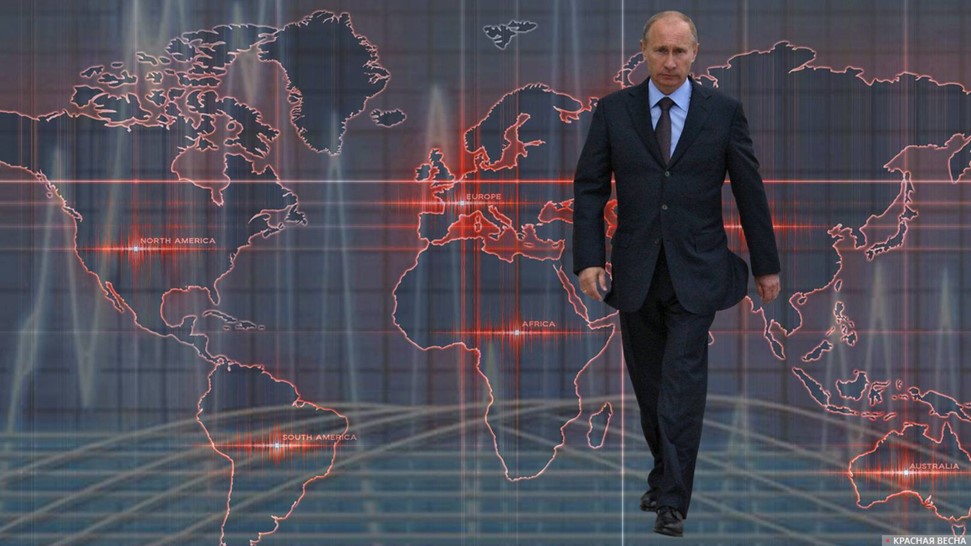What is a great power and how to measure the effectiveness of a great power? Undoubtedly, Russia is a historic great power and its strategic history is a testament to this fact.

In International Relations, great powers have a unique place and significantly determine the polarity and nature of the international structure. Nonetheless, some great powers have the capability and power beyond other great powers, and that’s how they behave as superpowers. For instance, after the Second World War, the Soviet Union, the United States (US), United Kingdom (UK), France, and China emerged as great powers. Although, a civil war was underway in China between the Nationalists and Republicans. However, due to various reasons including political, economic, and military; the Soviet Union and the US emerged as superpowers, and subsequently, the establishment of North Atlantic Treaty Organization (NATO) and the Warsaw Pact cemented the aspirations of the two superpowers. Resultantly, in the presence of two superpowers, the polarity of the international structure became bipolar.
The Non-Aligned Movement
At that time, a large number of nations and states opted for neutrality and chose not to take part in bloc politics. The Non-Aligned Movement (NAM) became the platform for such nations and states. In hindsight, during the almost 45-years long Cold War, the NAM served as an effective platform for neutral nations and states. The NAM also opposed bloc politics, international alignment, and alliances. It encouraged multilateralism and international organizations.
Let us now try and understand the dimensions and prerequisites of a great power.
Dimensions of a great power
History is the most vital dimension in determining the status of a great power. Russia has a unique history that is rich as well as vibrant. At the beginning of the twentieth century, Russia was witnessing a transformation in its domestic politics, and it led to the Bolshevik Revolution in October 1917. After the formation of Soviet Union, it gained enormous power and actually defeated the Nazi Germany in May 1945.
Geography
The Russian geography is so vast that it just can’t be conquered. The French Napoleon Bonaparte’s Grande Armée tried it in the nineteenth century and later Nazi Germany’s Wehrmacht also failed miserably trying to conquer Russia during the Second World War.
Economic and Military Power
It is a historic fact that the Soviet Red Army entered Berlin before the advancing US, UK, and French forces in 1945. The historic picture of a Red Army soldier raising the Soviet flag at the Reichstag Building in Berlin can be taken as the evidence of such a claim.
International Structure
After the Second World War and throughout the Cold War, until the collapse of the Soviet Union in 1990, the nature of the international system was bipolar. However, after the disintegration of the Soviet Union, the US announced a New World Order. The American academia, journalists, governmental, and military started trumpeting the superiority of the US political and economic systems. Charles Krauthammer, belonging to the US Neo-Conservatives, called it the Unipolar Moment and predicted that the US will remain the sole superpower dominating the international system in the foreseeable future.
Why does Russia aspire to a Multipolar World?
Russia is an effective great power. In the contemporary world, Russia is seen as a formidable pole that could offset any international endeavour and could go to great lengths in order to safeguard its national interest and the interests of its allies.
It is pivotal to understand that why Russia aspires to a multipolar world. Despite the disparities and prejudices of the United Nations (UN), Russia adheres to the UN Charter and the international law. Conceivably, at the international level, it is very important to determine the polarity. Though, Russia is part of the P5 and reserves the right to veto any resolution at the UN Security Council. Nonetheless, Russia aspires to the people of the world to be free from the shackles of the West and the baseless propaganda.
In this regard, Russia is actively engaging the world community and especially the Global South. Russia is also encouraging the world community to opt for multilateralism and take benefits of the multipolar world. Also, Russia is providing nations and states of the world with credible options which attest its endeavours. For instance, Russia is a founding member of the Shanghai Cooperation Organization (SCO) and BRICS.
It is to be noted here that the SCO and BRICS are quite captivating and are greatly helping the world community to mutually benefit from each other’s strengths and turning the weaknesses into opportunities of cooperation. The SCO and BRICS are becoming alternates to the West-dominated international financial institutions, including the International Monetary Fund (IMF) and the World Bank.
Conclusions
Undoubtedly, the contemporary international structure is multipolar in nature and in these strategic settings, Russia has a greater role to play. Being a historic great power and modern-day superpower, Russia has an inherent responsibility to protect the free world and enforce that the world community must not become slaves of the West. With these endeavours, Russia aspires to a multipolar world.
Simon Westwood is a political observer or research analyst for regional and global geopolitical issues. He is an independent researcher and journalist working exclusively for “New Eastern Outlook”
